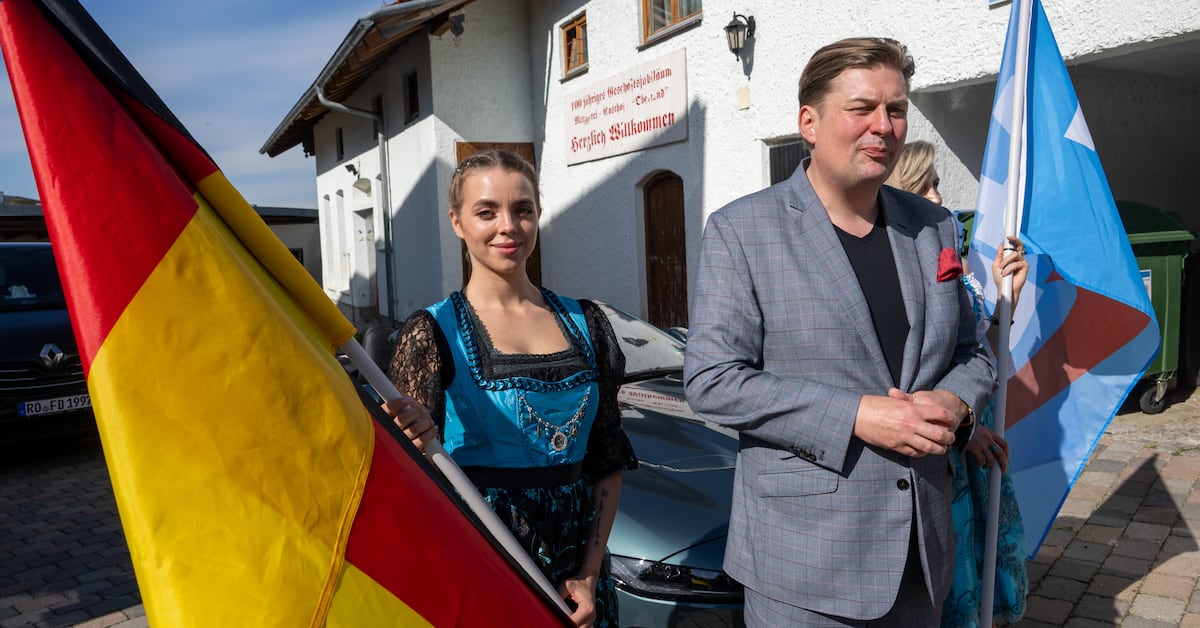The National Regroupment (RN), a party led by Marine Le Pen, and Matteo Salvini's Italian League have severed their relations with the German far-right Alternative for Germany (AfD). The decision comes after controversial statements by Maximilian Krah, AfD's candidate for the European elections, about the Nazi SS. The RN and the League have announced that, following the European elections from June 6 to 9, they will no longer share a group in the European Parliament with their German counterparts.
The inflammatory remarks by Krah, who insinuated that not all SS members were criminals, have prompted Le Pen and Salvini to distance themselves. The decision marks a significant strategic shift, opening the door for RN and the League to form new alliances within the European Parliament, potentially with groups like Vox and supporters of Italy's first minister Giorgia Meloni. This could also facilitate future agreements with the moderate right, which is more open to collaborations with Meloni and her allies than with the AfD.
“The AfD has crossed red lines,” stated Jordan Bardella, Le Pen's right-hand man and RN's candidate for the European elections. Salvini's party echoed this sentiment, noting that the situation had become untenable. Speaking to the Italian newspaper La Repubblica, Krah had stated that guilt should be assessed individually, and not everyone wearing an SS uniform could be automatically deemed a criminal. Such views have caused uproar, given the Nazi SS's role in the Holocaust.
The break with AfD was first reported by the French newspaper Libération and follows increasing friction within the European Parliament's Identity and Democracy (ID) group, to which RN, the League, and AfD belong. This rupture is seen positively within Salvini's League, especially among its northern factions linked to the industry, as it allows the party to pursue closer ties with more palatable far-right groups in the European Parliament.
This schism comes at a strategically critical time as nationalist and populist right-wing factions aim to be influential in the upcoming European elections. The move allows Le Pen and Salvini to realign with the European Conservatives and Reformists (ECR), a group that includes Vox and parties supportive of Meloni. The split will enable these parties to distance themselves from the AfD, which has been embroiled in various controversies, including alleged espionage for China and pro-Russian bribes.
Le Pen's forward movement can be seen in her attendance at a recent international conclave convened by Vox in Madrid. Her criticism of the AfD indicated frustration with what she perceives as a lack of leadership within the German party. This decision reveals an ongoing strategy to create a more unified but ideologically compatible far-right bloc within the European Parliament.
- In addition to the controversies stirred by Krah's statements, the AfD has faced several significant allegations that have further tarnished its image. Top candidate Maximilian Krah is under scrutiny for espionage after accusations against one of his employees. Bundestag member Petr Bystron is allegedly involved in bribery and money laundering, with reports indicating that police have discovered serial numbers of gold bars and large sums of cash in his Berlin home.
- Amid these allegations, the AfD's alignment with fringe right-wing positions and extremist actions has only exacerbated its alienation from potential far-right allies in Europe. The tumultuous conditions within the AfD have rendered it an increasingly untenable partner for more strategically focused far-right parties such as Le Pen's RN and Salvini's League, both of which are working towards broader, more stable alliances in Europe.






